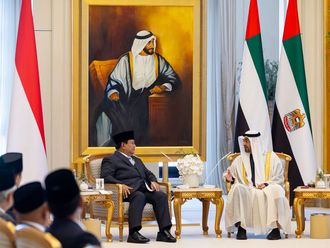
Dubai: The World Government Summit Organisation (WGS) on Wednesday launched a new report highlighting 21 “critical priorities” for the world’s governments as they recover from the disruption caused by the COVID-19 pandemic.
While dealing with the pandemic has absorbed the attention of governments around the world over the last 18 months, underlying societal issues such as mental health challenges and the climate crisis are set to intensify if governments do not adopt a holistic and proactive approach to the recovery effort, the report suggests.
Dh13.96 trillion economic hit
The report highlights that almost 50 per cent of the global cost incurred by the pandemic will fall on developed economies. Even if these countries are able to vaccinate their entire population and developing nations succeed in vaccinating 50 per cent of their population, the world economy could take an economic hit of up to $3.8 trillion (Dh13.96 trillion), with half of that cost absorbed by the wealthiest countries, the report asserts.
The ‘21 Priorities for Governments in 2021’ report was drafted after the first World Government Summit Dialogues event that was held under the patronage of His Highness Shaikh Mohammad Bin Rashid Al Maktoum, Vice-President and Prime Minister of the UAE and Ruler of Dubai.
Reconsider priorities
Abdulla Al Gergawi, UAE Minister of Cabinet Affairs and Chairman, WGS, said: “Dealing with the economic, social, political and public health challenges posed by the pandemic over the last year has been a true test of the infrastructural, legislative and regulatory resilience of government models around the world. These challenges have forced us to reconsider our priorities and ways of managing future disruptions.”
Five focus areas
The WGS report identifies five critical areas of focus that require the immediate attention of government leaders. In addition, it outlines new mechanisms and approaches to make the global transition and adaptation to the new normal inclusive, productive and innovative.
These five focus areas are: Reimagining and Reinforcing Key Public Institutions, Competing in a Transformed Economy, Navigating a Transformed Geo-Technical Order, Repairing the Social Fabric and Securing the Future.
‘Critical juncture’
Speaking on the report, Rudolph Lohmeyer, Kearney partner and head of the firm’s National Transformation Institute, said: “The world is clearly at a critical juncture in which we face both deep uncertainties and remarkable opportunities in many policy domains.
“For government leaders, the decisions made this year will have exceptionally long-term consequences. By taking anticipatory action on these 21 priorities, leaders have an opportunity to harness this transition in the service of their citizens through building societies that are more inclusive and innovative.”









